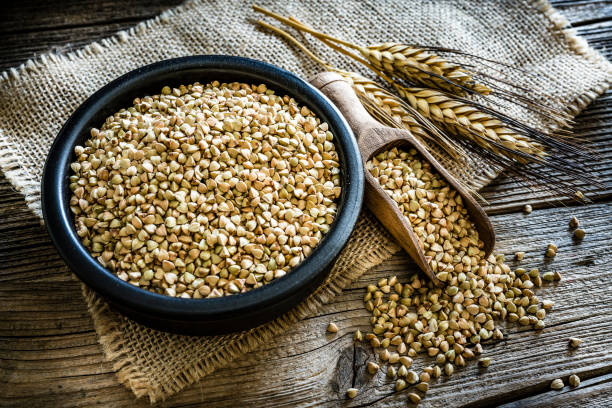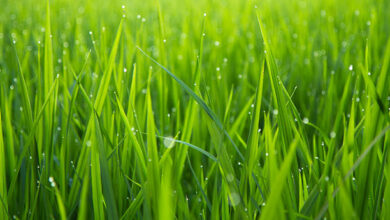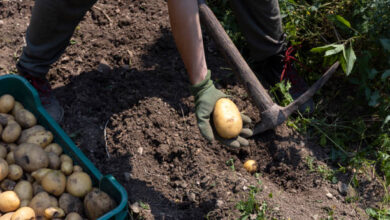
Buckwheat Seeds: Benefits, Uses, and Growing Tips
Buckwheat seeds have been gaining popularity in recent years due to their impressive nutritional profile and versatility. Whether you’re looking for a gluten-free grain alternative, a nutritious addition to your diet, or a new crop to grow in your garden, buckwheat seeds are an excellent choice. In this guide, we’ll explore the benefits, uses, and cultivation tips for buckwheat seeds, providing you with all the information you need to make the most of this incredible superfood.
What are Buckwheat Seeds?
Buckwheat seeds, despite their name, are not related to wheat. They are the seeds of the buckwheat plant (Fagopyrum esculentum), which belongs to the Polygonaceae family. Originating from Southeast Asia, buckwheat has been cultivated for thousands of years and is prized for its nutrient-dense seeds. These seeds are rich in protein, fiber, vitamins, and minerals, making them a powerhouse of nutrition. Buckwheat seeds are particularly noted for being gluten-free, making them an excellent option for those with gluten sensitivities or celiac disease.
Health Benefits of Buckwheat Seeds
- Rich in Nutrients: Buckwheat seed is packed with essential nutrients, including B vitamins, magnesium, manganese, and phosphorus.
- High in Antioxidants: They contain rutin, quercetin, and other antioxidants that help protect against oxidative stress and inflammation.
- Gluten-Free: As a naturally gluten-free grain, buckwheat is a safe and nutritious alternative for people with gluten intolerance.
- Heart Health: Buckwheat seeds can help lower cholesterol levels and improve heart health due to their high fiber content and beneficial compounds.
- Blood Sugar Control: The fiber and protein in buckwheat seed can help regulate blood sugar levels, making them a good choice for individuals with diabetes.
Culinary Uses of Buckwheat Seeds
Buckwheat seed is incredibly versatile and can be used in a variety of dishes:
– Breakfast: Use buckwheat groats to make porridge or granola for a nutritious start to your day.
– Lunch: Add cooked buckwheat to salads or soups for added texture and nutrition.
– Dinner: Use buckwheat flour to make gluten-free pasta, pancakes, or bread.
– Snacks: Make buckwheat crackers or energy bars for a healthy snack option.
YOU MAY LOVE TO READ
Prickly Plant Parts: A Comprehensive Lesson
Wheat Seeds: Everything You Need To Know
Morning Glory Seeds: Everything You Need to Know
How to Grow Buckwheat Seeds
Growing buckwheat is relatively easy, making it a great crop for beginners:
- Soil Preparation: Buckwheat grows best in well-drained, fertile soil with a pH between 6.0 and 7.0.
- Planting: Sow buckwheat seeds directly into the soil after the last frost. Plant them about 1-2 inches apart in rows spaced 12-18 inches apart.
- Watering: Keep the soil consistently moist, but not waterlogged. Buckwheat is drought-tolerant once established but performs best with regular watering.
- Sunlight: Buckwheat needs full sun to thrive, so choose a sunny spot in your garden.
- Harvesting: Buckwheat is ready to harvest in about 10-12 weeks. Cut the plants when most seeds have matured, and allow them to dry before threshing and storing.
Common Mistakes to Avoid When Growing Buckwheat
- Overwatering: While buckwheat needs regular moisture, overwatering can lead to root rot and other issues.
- Poor Soil: Buckwheat prefers fertile soil; amend poor soil with compost or organic matter before planting.
- Late Planting: Plant buckwheat early in the growing season to avoid the risk of frost damaging the crop.
Advanced Tips for Buckwheat Cultivation
- Crop Rotation: Rotate buckwheat with other crops to prevent soil depletion and reduce pest and disease problems.
- Companion Planting: Grow buckwheat alongside other crops to attract beneficial insects and improve soil health.
- Green Manure: Use buckwheat as a cover crop to improve soil structure and fertility by plowing it under after flowering.
Conclusion
Buckwheat seed is a fantastic addition to any diet or garden, offering numerous health benefits and versatile culinary uses. Whether you’re looking to improve your nutrition, explore new recipes, or try your hand at growing a new crop, buckwheat seed is worth considering. Start incorporating buckwheat seed into your meals or planting them in your garden today, and enjoy the many benefits they have to offer.




